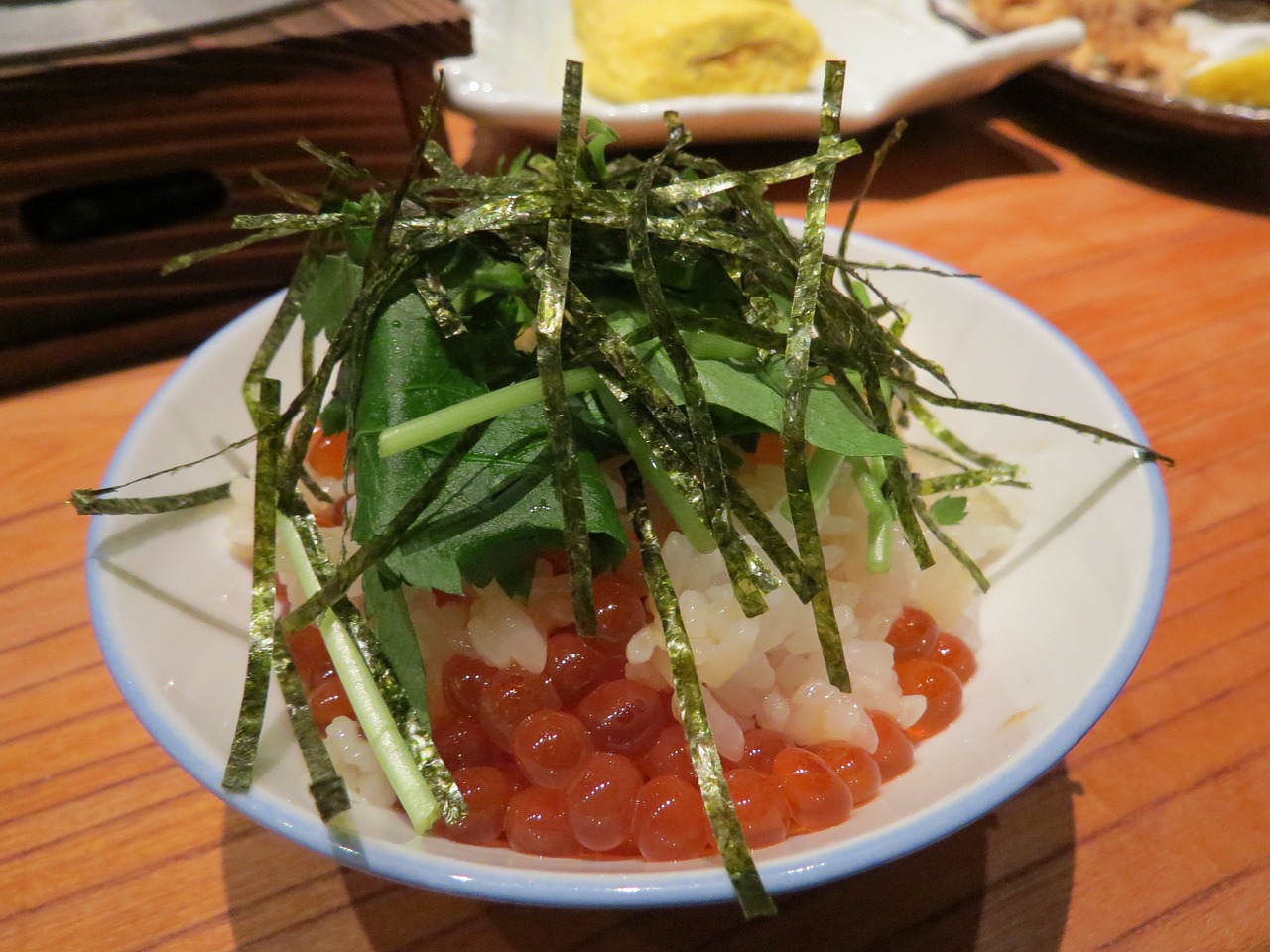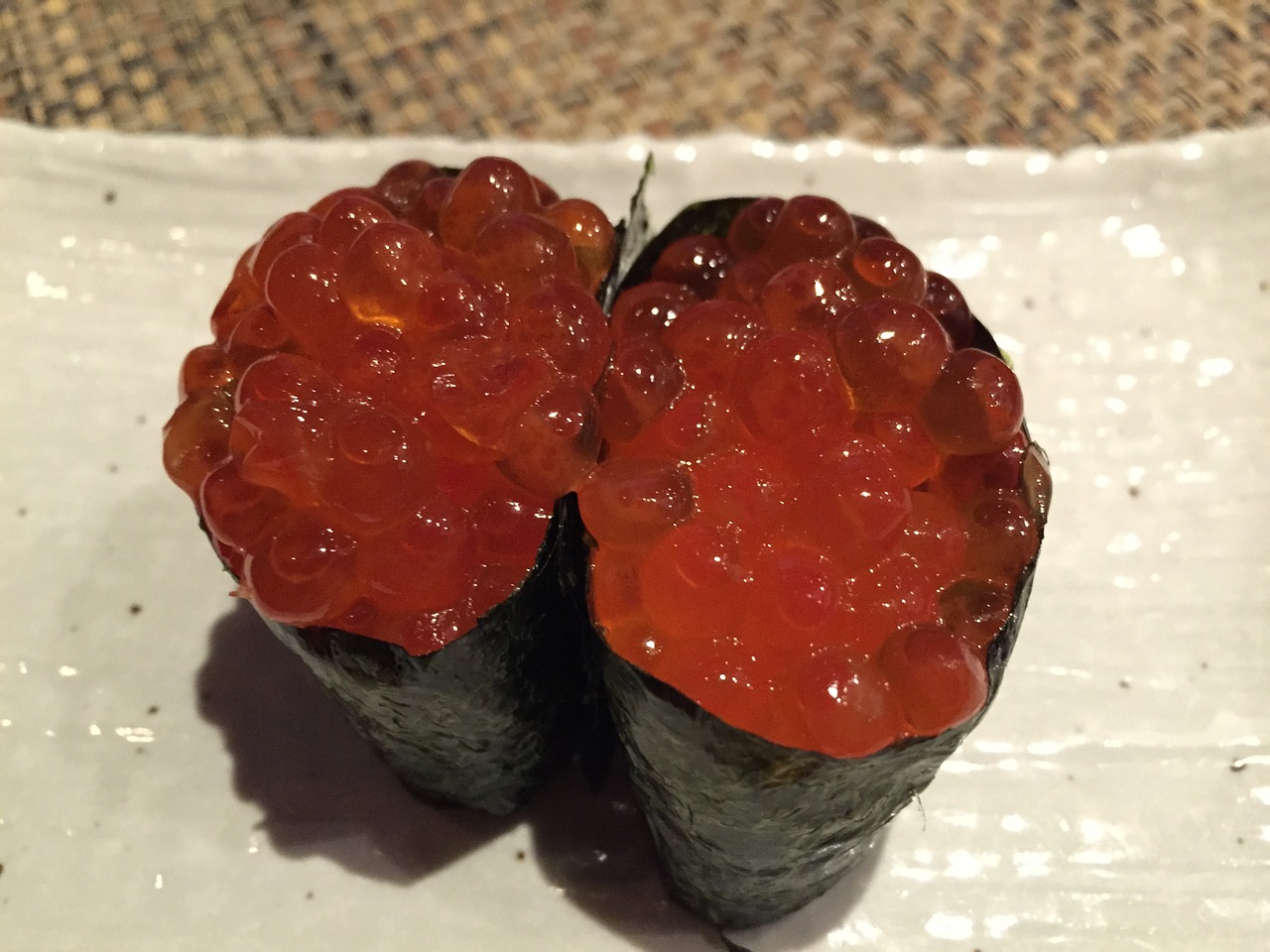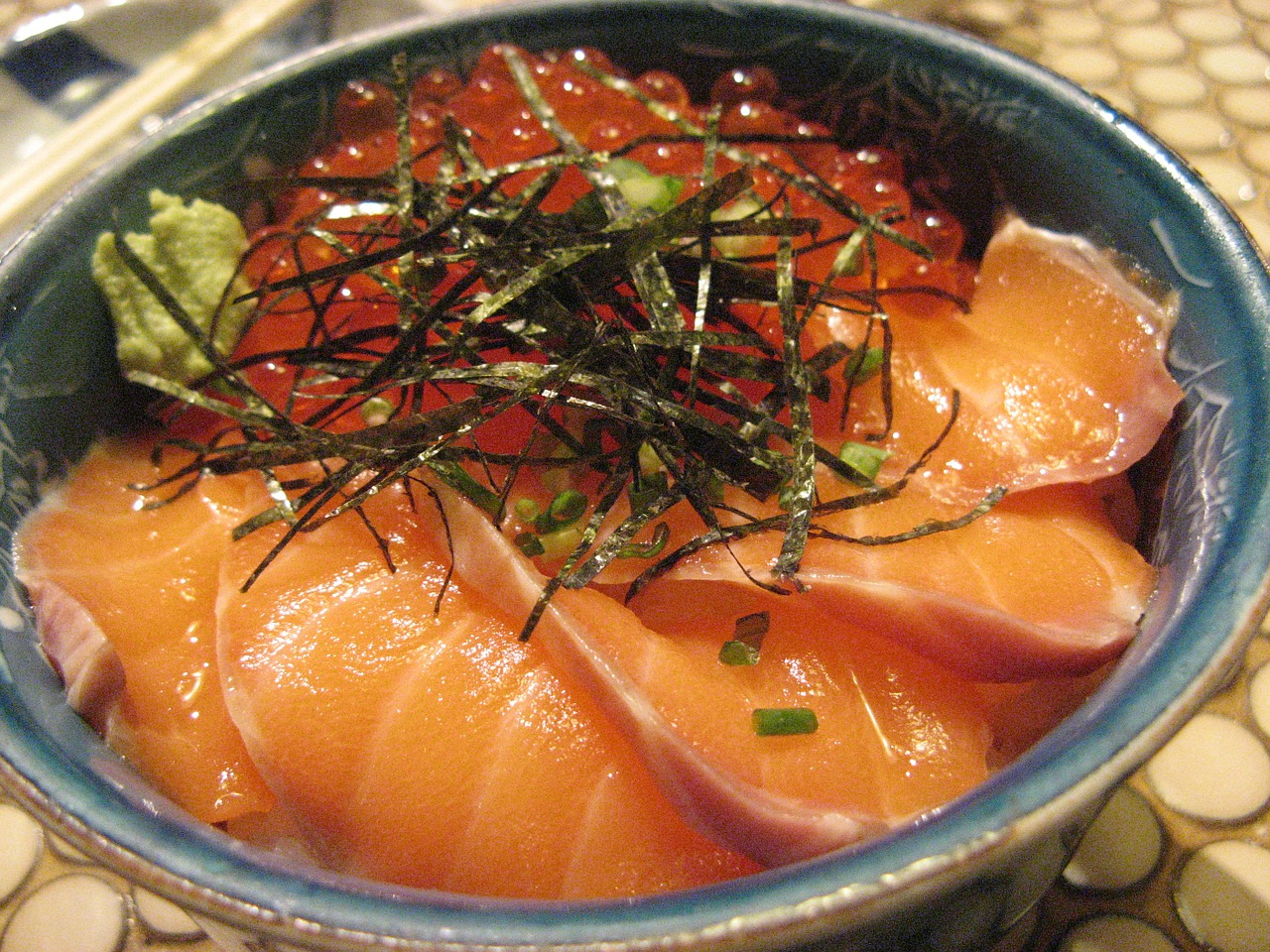Blog Categories
Recent Posts
- Home
- How to Make Salmon Roe Sushi
How to Make Salmon Roe Sushi
Posted by on
In my last post I mentioned that I was part of the resort and restaurant industry in Florida, where food and presentation is paramount. Entertaining guests is a large part of that world and my grandmother and her extensive staff always served hors d'oeuvres and cocktails before the formal evening meal. And though it seems like several lifetimes ago, I still recall black caviar on crackers with lemon, fresh crab meat on crackers with thinly sliced cucumber, garlic and lemon, and fresh shrimp speared with toothpicks were part of the evening.
For years, many chefs only used black caviar from Russia, saying that was the only real caviar and then, the Russian caviar trade fell with the fall of the Soviet Union and lo and behold people discovered salmon caviar.
As salmon caviar, bright orange-red eggs, has gained traction around the world, most salmon caviar that comes from Alaska is exported to Japan. Billions and billions of pounds of the red caviar harvested in Alaska each year are eaten by the Japanese, who believe that caviar makes you very healthy and very smart. Japanese food critics separate roes from chum salmon, sockeye, and king salmon; farmed from wild salmon; and from younger or older salmon. Red caviar is also less expensive then black caviar.
However, chefs and food snobs still debate: Is it real caviar or fake caviar? 1 Is salmon caviar really just salmon roe? Where is it from? Is it farmed or wild? How fresh is it? Experts agree that it’s not so much the taste of the caviar that’s most important. It’s how the caviar is handled after it’s harvested that’s critical. The eggs are quite fragile and must be stored at or near freezing temperatures to preserve their flavor.

One way to find out if salmon roe passes the test is to make your own Salmon Roe Sushi. It’s easier then it appears, it just takes some extra prep time. The recipe for Salmon Roe Battleship Sushi only has four ingredients: nori, wasabi paste, salmon roe (also known as ikura), and sushi rice. Three parts of the recipe needs to be prepared separately with the exception of the sheet of nori, which can be purchased from your local Asian grocery store.
1. Salmon Roe or ikura
Pick up two large skeins of fresh salmon roe from your local seafood shop and follow this short recipe to create a brine for your roe. We used this recipe 2 as the base for ours. You’ll need:
Ingredients
- 1 1/2 cups dashi
- 2 tablespoons soy sauce
- 1 tablespoon each of salt, sugar, and sake
Directions
- Make the brine by adding dashi, soy sauce, sake, sugar and salt to a bowl and stir until completely dissolved.
- Watch the video about separating the roe from the skein.
- Rinse the caviar with cold water, put in a container and submerge it in brine.
- Let it sit for 1 day and it will be ready to eat.

2. Sushi Rice
Sushi rice needs to be made by hand, it can’t be picked up at the grocery store.
Ingredients
- 2 cups sushi or short grain rice
- 2 cups water
- 2 tablespoons rice vinegar
- 2 tablespoons sugar
- 1 tablespoon kosher salt
Directions
- Place the rice and 2 cups of water into a medium pan over high heat. Bring to a boil, uncovered. Once it begins to boil, reduce the heat to the lowest setting and cover. Cook for 15 minutes. Remove from the heat and let stand, covered, for 10 minutes.
- Combine the rice vinegar, sugar and salt in a small bowl and heat in the microwave on high for 30 to 45 seconds. Transfer the rice into a large wooden or glass mixing bowl and add the vinegar mixture. Fold thoroughly to combine and coat each grain of rice with the mixture. Allow to cool to room temperature before using to make sushi.
Our sushi rice recipe was sourced from this recipe 3.

3. Wasabi Paste
Fresh wasabi is a type of horseradish and it’s quite easy to make your own paste 4. You can either get a fresh rhizome of wasabi from an Asian grocery store and grate it or get dry powder and make your own paste. Wasabi in any form is very strong, so just eat a little until you get used to the taste.
Recipe for Ikura Salmon Roe Battleship Sushi
Ingredients
- 1 cup prepared sushi rice
- 1 sheet nori
- 3/4 teaspoon wasabi paste, or to taste
- 4 ounces salmon roe (ikura)
Directions
1. Prepare 8 finger sushi by dipping your right hand into a bowl of vinegar water and then tap your fingers on a damp towel to remove excess water, and take up about 2 tablespoons sushi rice. Form the rice into 8 small oval bite-sized portions, measuring about 2 inches long by 1 inch wide.
2. Cut the nori into 8 strips, each 1 inch X 7 inches.
3. Wrap a 1 inch strip of nori around the sides of each finger sushi, shiny side out (sticking it closed with a grain of rice, if necessary), creating a tiny collar all around the rice.
4. Dab a little wasabi paste on top of the rice inside the nori collar. Spoon about 1 tablespoon of the salmon roe into each nori collar. Serve immediately while the nori is crisp.
Out of the all the types of caviar and fish eggs available in Europe, Asia, and the United States, only nine types of caviar are used for Japanese sushi: Ikura, Zazunoko, Masago, Mentaiko, Uni, Tarako, Karasumi, Tobiko, and Sujiko. These lovely eggs also come in a range of colors and sizes from dark red, yellow, pink, to gold and orange and are found in textures and sizes ranging from small tight eggs to the large globs of orange ikura eggs.
If you don’t want to cure or brine the salmon roe to make salmon roe sushi, try the salmon caviar offered by Loki Fish Company - it's a delectable choice for any dish, not just sushi.
References:
1. http://www.nytimes.com/2003/01/15/dining/salmon-brings-its-own-caviar-to-the-table.html
2. http://norecipes.com/recipe/ikura-salmon-caviar
3. http://www.cookingchanneltv.com/recipes/alton-brown/sushi-rice.html
4. http://makemysushi.com/basic-sushi-essentials/wasabi.html


 Loading... Please wait...
Loading... Please wait...













